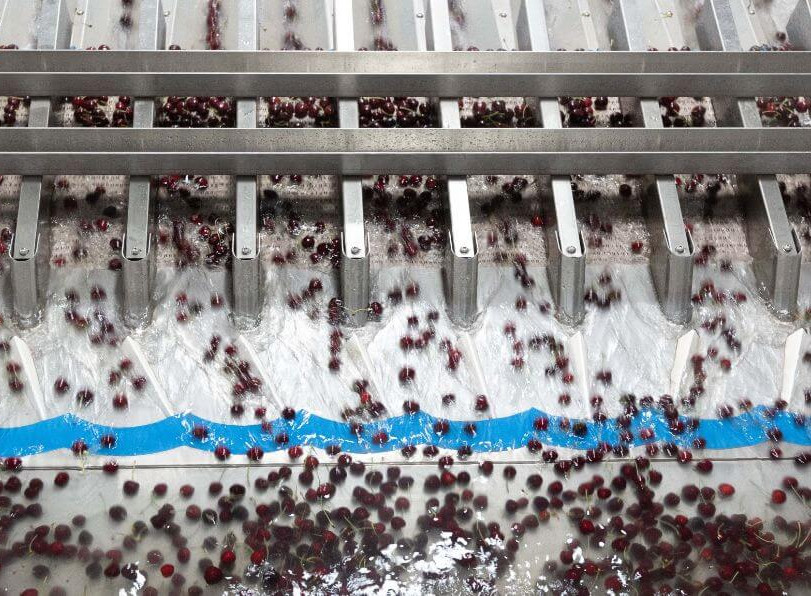National cherry production from Shandong province has recently begun to flood the Chinese market, receiving a positive reception from numerous consumers. Compared to Bing cherries from Dalian, in Liaoning province, which hit the market in April, cherry prices have decreased significantly.
In the key cherry production region, Linqu county, in Shandong, farmers have had a good open-field cherry harvest, resulting in a price drop.
This is particularly evident for the Brooks variety, known for its bitterness and tender flesh. Just a few days ago, Brooks cherry prices were around 10-12 Chinese yuan ($1.38-1.66) per kilogram, but now they have dropped to just 4-6 yuan ($0.55-0.83) per kilogram, with smaller fruits sold for only 1-2 yuan ($0.14-0.28) per kilogram.
Meanwhile, in the city of Yantai, in Shandong, open-field Brooks cherries are currently priced at 12 yuan ($1.66) per kilogram, while higher-quality ones reach 20 yuan ($2.76) per kilogram.
Over the past two years, the volume of greenhouse cherries produced in Jinan, the capital of Shandong province, has increased, with cultivation in districts like Changqing, Laiwu, and Zhangqiu. While greenhouse cherries begin to gradually appear on the market from late April, the widespread arrival of open-field cherries is not expected until late May.
Some retailers have noted that cherries are not suitable for long-distance transportation and are difficult to store; some greenhouse cherries even require refrigerated transport. For this reason, locally harvested cherries are usually sent to the market immediately, with naturally lower prices.
Once the large influx of locally grown open-field cherries enters the market in June, overall cherry prices are expected to further decrease.
Inconsistent quality and overproduction are the main factors affecting national cherry prices. In China, there is a wide variety of cherry cultivars, each with a unique taste profile. However, even for the same cultivar, significant taste differences can occur depending on growing conditions. Over time, this inconsistent quality has led many consumers to question the reliability of Chinese cherries.
Additionally, the difficulty in ensuring the quality of nationally grown cherries has led many fruit growers to opt for greenhouse cultivation to quickly recoup costs. While this method may shorten the ripening period and accelerate returns on investment for growers, it often means compromising the taste and quality of cherries.
Greenhouse cherries require artificial pollination because natural pollination is not possible in these environments. All these factors influence the taste of cherries, thereby impacting their market price.
The increase in production has also made it difficult for nationally grown cherries to maintain high prices. According to reports, Chinese sweet cherry production is expected to reach 760,000 tons in 2024, a 12% increase over the previous year. The recovery of production in Shandong province, the main cherry-producing region, and the growth of production in Sichuan and Liaoning provinces are the main factors driving this increase.
In recent years, thanks to the lucrative profits from cherry cultivation, many farmers have switched to this crop. Thanks to this trend, the cultivated area of cherries in China has exceeded 233,000 hectares, accounting for about 20% of the global total. The corresponding increase in cherry supply has intensified competition in the market, making price wars inevitable.
Source: Produce Report
Image: Pexels
Cherry Times - All rights reserved










